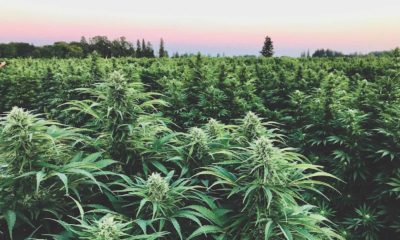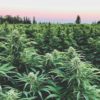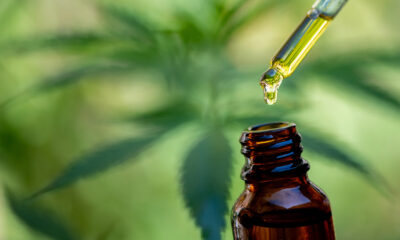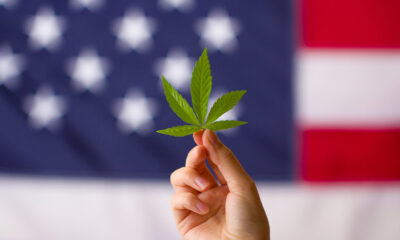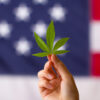
Legal
‘World’s Largest Marijuana Company’ Has the Largest Problem With the U.S. Government
The FDA is scrutinizing Curaleaf for its CBD product claims.
Less than a week after closing yet another stock-heavy deal to make a claim to be the “largest marijuana company in the world,” Massachusetts-based Curaleaf received a very troubling letter from the federal government.
Curaleaf has spent most of 2019 swooping up cannabis business licenses in recreational states. Last week, Curaleaf announced it would pay $875 million for Grassroots, a company based in Illinois, where lawmakers legalized recreational cannabis in May. Earlier in the year, Curaleaf closed a $950 million all-stock deal for Portland, Oregon-based Cura Cannabis.
But CBD is also central to Curaleaf’s business plan — and in a way that is apparently violating the Food and Drug Administration’s guidelines on how to advertise and market products containing the widely popular, poorly understood cannabis compound.
As Bloomberg reported, various Curaleaf products including the “CBD Lotion,” “CBD Pain-Relief Patch,” “CBD Tincture” and “CBD Disposable Vape Pen” sold on www.curaleafhemp.com and advertised on Facebook and Twitter “are unapproved new drugs sold in violation” of federal law, the FDA informed the company in a letter sent Monday.
Products that claim to cure or relieve pain or other realities of the human condition are strictly regulated in the United States under the Food, Drug, and Cosmetic Act, a series of laws passed to protect consumers from patent medicine and snake-oil hucksters. Currently, no cannabis product is so regulated — including products derived from hemp, which most CBD products sold in the country are.
You can sell CBD products all you want under the Farm Bill signed into law by President Donald Trump in December as vaguely defined “wellness products;” you just can’t tell a would-be customer that your CBD product will cure specific ills — at least not until such claims undergo rigorous FDA examination.
And that’s exactly what Curaleaf is doing, the FDA said in its letter.
“Based on our review” of the products advertised on Curaleaf’s website and related claims regarding their efficacy, they are marketed as drugs and are “intended for use in the diagnosis, cure, mitigation, treatment, or prevention of disease and/or intended to affect the structure or any function of the body,” the FDA wrote. “New drugs may not be legally introduced or delivered for introduction into interstate commerce without prior approval from the FDA.”
Among Curaleaf’s claims that drew negative attention from the FDA, the agency said in a press release Tuesday, are statements suggesting that CBD cures cancer, treats Parkinson’s disease, treats Alzheimer’s disease, treats depression and anxiety and can “reduce the severity of opioid-related withdrawal.”
There are some findings that suggest CBD may play a role in the treatment of these conditions, but they are still very preliminary and do not support easy-to-remember marketing pitches like the above.
Other violations noted by the FDA include improper labeling and similar violations with its CBD products intended for animals. The FDA gave Curaleaf 15 days to respond to the allegations.
A Curaleaf company representative told Bloomberg that the FDA’s warning is “under review” and that the company plans to comply “with FDA requirements for all the products that it markets.”
Products containing CBD have exploded in availability and popularity over the past year, a craze that only intensified after the Farm Bill clarified that hemp production and processing are legal in the United States. Hemp is cannabis sativa containing 0.3 percent THC by volume or less; cannabis sativa with more THC is considered marijuana and illegal under federal law.
Exactly what companies can do with CBD is under review at the FDA, which held a hearing in May and received comments from members of the public up until July 16. In the meantime, the FDA has been clear that CBD can’t be sold as a drug and can’t be added to food and beverages.
It’s not entirely clear if Curaleaf drew FDA attention because it is so big, or because it was making such a big deal about being so big, a deal that helped boost its stock prices, or because the claims were particularly bold.
“The agency continues to be concerned at the proliferation of products asserting to contain CBD that are marketed for therapeutic or medical uses that have not been approved by the FDA,” the FDA’s statement issued Tuesday read.
A “high-level internal working group” at the FDA tasked with figuring out how American companies can market CBD has yet to release its findings.
The FDA has approved some CBD drugs for use on humans, but GW Pharmaceuticals’ Epidiolex, intended to relieve severe epilepsy in children, underwent lengthy FDA trials beforehand.
Until this week, Curaleaf products could be found in national chain drugstores like CVS, which inked a deal with Curaleaf earlier this year. Following the FDA’s letter, a CVS representative told Bloomberg that those products would be removed from the store’s shelves.
The FDA’s letter to Curaleaf represents what is so far the highest-profile problem a legal cannabis company has had with the federal government under the Trump Administration. The fact that it was a CBD company — a company that markets products in all 50 states, whereas recreational cannabis businesses are still firewalled off from interstate business — is no accident.
TELL US, what do you the FDA will say about CBD?







